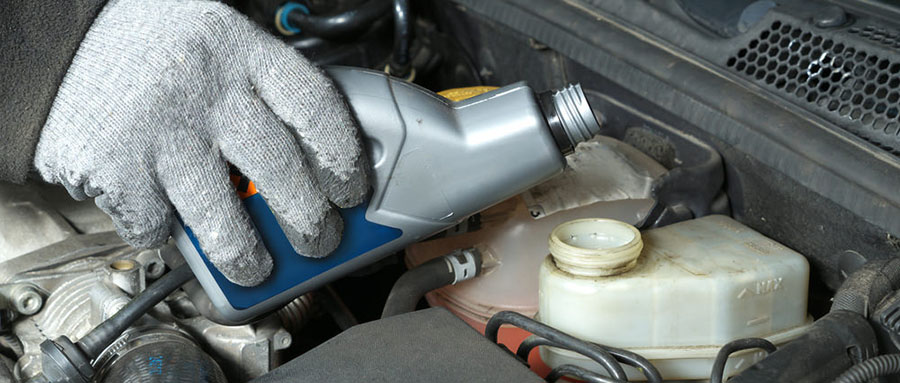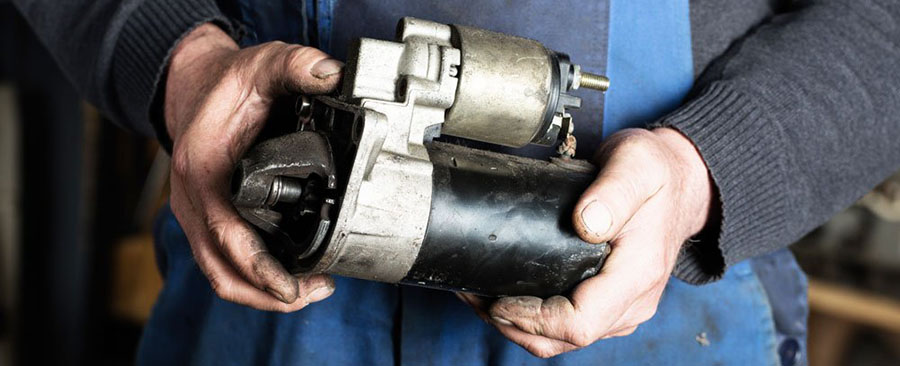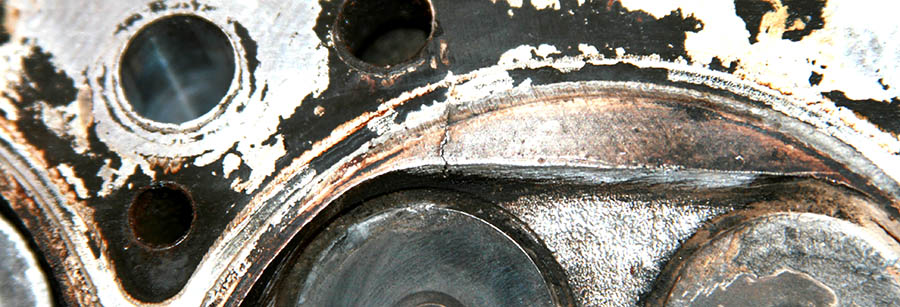Tire Rotation and Balancing – One thing that you’ll definitely have to replace as you drive your vehicle are your tires – and they can be expensive. According to a survey on Angie’s List, members paid an average of $637 for a complete set of four new tires. Usually, new tires will cost you at least $500 for all four, but the cost can easily soar over $1,000 depending on the size and type of tire you need for your vehicle, as well as the quality of the tires you choose. Specialized tires such as high-performance, off road, or low profile / uncommon sizes can even cost around $500 each, bringing the total cost of a new set to around $2,000. With this in mind, every vehicle owner should want to prolong the life of their tires as much as possible to save their hard-earned money. Most tires can be expected to last about 25,000 to 50,000 miles before needing replacement, but things such as road conditions, your wheel and suspension setup, and your driving habits may cause them to wear much more quickly. Your tire manufacturer should have a service schedule recommendation, but if you don’t know how to find it, your Certified Auto Repair Specialist here in Pasadena can help you figure it out.
The easiest, and perhaps most effective thing you can do to slow down wear on your tires is to practice good driving habits. You want to minimize wheelspin and loss of traction, which will rub your tires against the rough pavement and wear down the outer layer of rubber more quickly. To do this, you should accelerate and brake gently, and slow down for corners. If you hear squealing, your tires are at the limits of their adhesion and working harder than they have to, which will cause them to wear out more quickly.
Three of the most important things that you can do to help your tires live longer are regular tire rotations, wheel balancing, and alignment.
Most tire manufacturers recommend that you rotate your tires around every 5,000 to 8,000 miles, but if you’re not sure of the exact number our service advisors can check for you to keep you on schedule.
Tire rotation is a procedure that is performed which switches positions for your tires, usually from the front to the back. This way, the tires previously on the back will have to perform some duty on the front, and the tires that were in front can get a break in the back. They are recommended because, in normal driving, your front tires will wear more along their outer edges because they are responsible for steering your car and handle most of the load while cornering. Front wheel drive cars are under even more load on their front tires because they are responsible for not only steering the vehicle, but accelerating as well. Getting your tires rotated will allow all four tires to wear more evenly over their life, which will help them last longer. However, some high performance vehicles have unidirectional tires that can only be on the left or right side of the vehicle, or different sized tires in the front and back which will make front to back rotation impossible. In these situations, our service advisors can help you figure out the best option to make your tires last longer.
The second major procedure you can do to extend the life of your tires is wheel balancing. As you drive, your wheels may fall out of balance, causing them to wobble or bounce against the road, wearing more quickly. You will most likely notice a slight vibration or hum when driving if you have a wheel that’s out of balance, caused by the wheel bouncing against the road. Wheels going out of balance are caused by an uneven weight on one side of the wheel, similar to when you load clothes unevenly into a washing machine and it starts to shake as it spins. Wheels are usually balanced by adding small weights to the inside of the wheel in order to offset any uneven weight distribution. Some of the common causes that throw a wheel out of balance are one of these weights falling off, mud or debris getting stuck to the inside of your wheel, or a tire malfunction. Hitting a pothole while driving around Costa Mesa can also bend your wheels and cause similar symptoms, but a bent wheel should be repaired or replaced instead of just trying to fix it by balancing. An unbalanced wheel will also negatively affect your gas mileage because it forces your car to drive less smoothly, creating more friction and working harder.
Finally, having wheels out of alignment can also cause accelerated or uneven wear. This is also usually caused by hitting a bump or pothole.
An easy way to test if your wheels are in alignment is to find a flat, empty street or parking lot, accelerate straight, and let go of the steering wheel. If your vehicle goes at least 100 feet before starting to veer off track, then your alignment is most likely okay. However, if it starts to veer to the side more quickly, you probably have an alignment problem, which can negatively affect your gas mileage and tire life. In serious cases, you may notice that you have to keep your steering wheel slightly rotated to keep your car driving straight. In this case, you definitely have an alignment problem, and should get it fixed as soon as possible in order to prolong your tire life and improve your gas mileage.
Your Certified Auto Repair Specialist here in Pasadena wants to help you help your car last as long as possible, from your engine to your tires. If you suspect that a wheel is out of balance or alignment, or need a tire rotation, call today at (626) 793-2220. Our service advisors and technicians can help you figure out the best options for your car to help your tires last as long as possible, so give us a call today!
Looking for Auto Insurance? Try Long Beach Insurance







